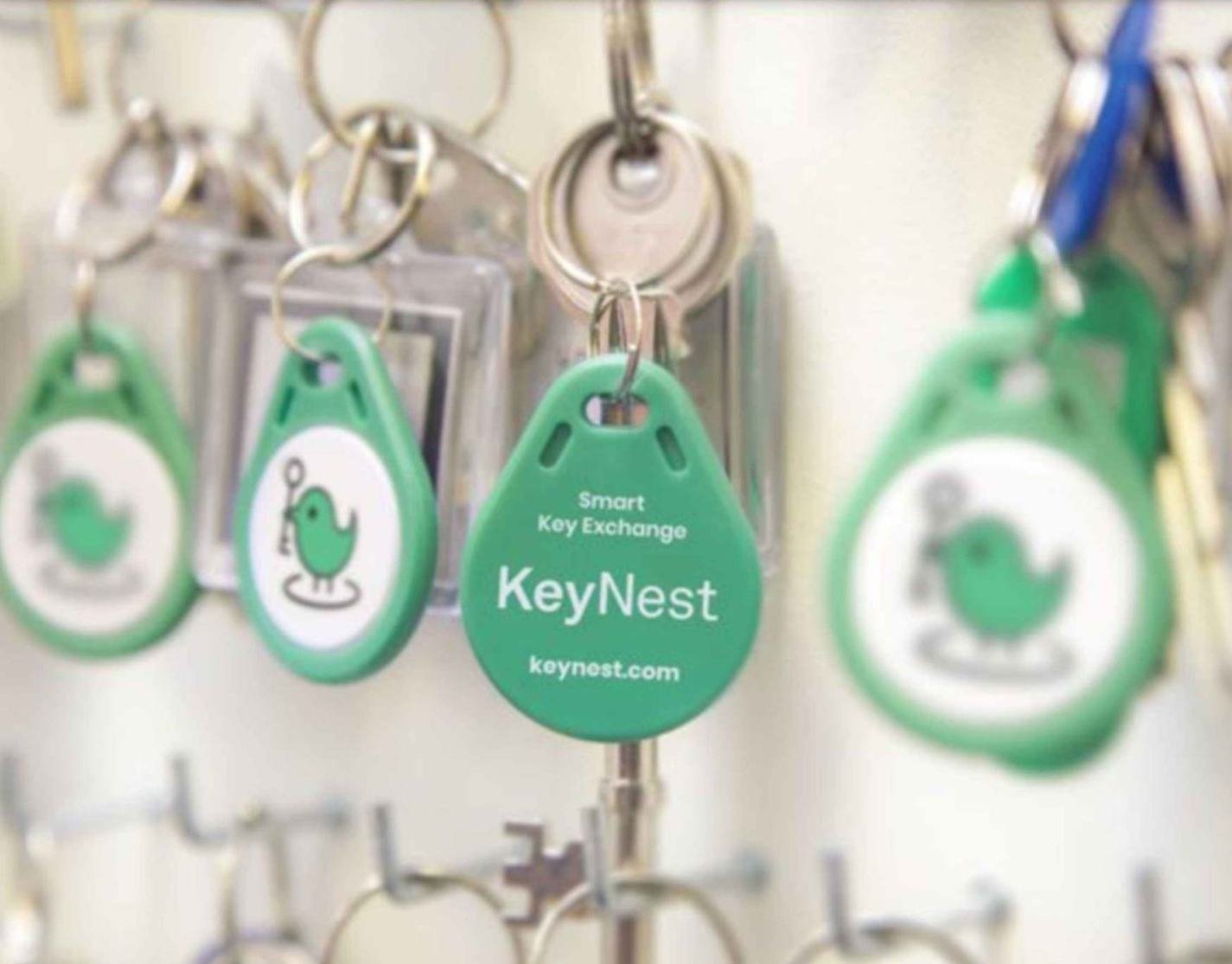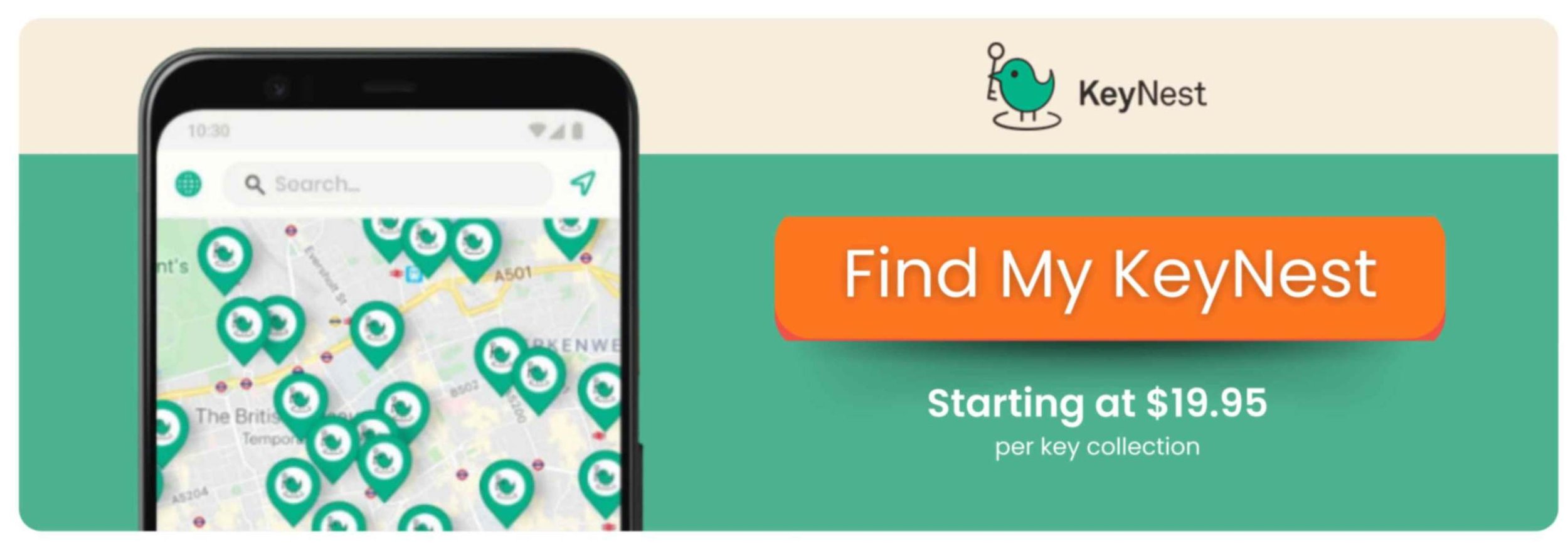5 Alternatives To Lock Box & Key Box For Remote Check-Ins In Australia
Managing remote check-ins effectively is one of the biggest challenges for Airbnb hosts in Australia. While a lock box and a key safe are popular solutions, they’re not always the most secure as someone can easily break into a lock box, convenient or guest-friendly options. As hosting becomes more competitive, offering seamless check-in experiences can set you apart. Exploring alternatives can enhance security to store keys, improve guest satisfaction, and streamline your hosting process.
Australia’s diverse rental market, with properties in urban areas, coastal retreats, and remote outbacks, calls for flexible solutions and options available that cater to different needs and also as alternative to key safe box. Modern technologies and innovative tools offer numerous options that outperform traditional lockboxes. From a smart lock, lockbox to concierge services, the alternatives are as varied as they are effective.
This guide will help you discover five practical alternatives to a key lock box and key storage for managing remote check-ins. Whether you're hosting a bustling Sydney apartment or a serene Queensland retreat, these options can elevate your hosting game.
1. KeyNest: The Ultimate Solution For Key Management
KeyNest is an attractive option for Airbnb hosts looking for secure, efficient and scalable alternatives to traditional lockboxes to elevate the overall guest experience. This innovative key exchange service offers a network of KeyNest Points, KeyNest Lockers and a cloud-based platform known as KeyNest Cloud, making it an excellent solution for remote check-ins and seamless experience for your guests and optimizes the system for any veteran or new Airbnb hosts to manage access on their property
Hosts of vacation rentals drop off keys at KeyNest Points and guests can pick them up using a secure PIN code performing additional security in an exchange of keys for added peace of mind. Additionally, KeyNest Lockers provide self-service key exchanges as a form of key handover and self check-in, while the KeyNest Cloud System offers advanced tracking and management features of remote access best suit to provide a safe key tracking and access to the property. This section delves into each KeyNest product, highlighting how they can revolutionize your check-in process.
KeyNest Points
KeyNest Points are physical locations—often within local businesses—where property management companies can securely store, transfer and perform key drop-off ensuring the safety of their properties; and guest may collect the keys in their preferred arrival time eliminating the risk of unauthorized access and for host to be always physically present in key handing.
Convenient Locations: Available in thousands of spots across Australia, including urban and rural areas.
Secure System: Guests need a unique PIN code to retrieve keys, ensuring safety to manage access to your property and reducing unauthorized access.
Extended Hours: Many points operate late or 24/7, catering to guests arriving at odd hours.
Time-Saving: Hosts don’t need to meet guests in person, streamlining the check-in process.
Affordable: Pricing is competitive, with plans for both occasional hosts and high-volume property managers.
KeyNest Lockers
KeyNest Locker is another key storage options that can provide a self-service, secure key storage and automated option for key exchanges and self check-ins with its excellent security features that can be put up at public infrastructure near apartment buildings.
Tamper-Proof Design: Built to withstand weather and unauthorized attempts, ensuring keys stay secure.
Easy Access: Guests use a PIN code sent via email or SMS to retrieve keys effortlessly.
24/7 Availability: Perfect for guests with late-night guest arrivals or tight schedules.
Scalable Solution: Great for hosts managing multiple properties across various locations.
Guest-Friendly: Simple instructions make it an easy and stress-free experience for travelers.
KeyNest Cloud
KeyNest Cloud is a digital platform designed for hosts and property managers to streamline key management guaranteeing security of your property.
Real-Time Tracking: Know when keys are dropped off or picked up, ensuring accountability.
Seamless Integration: Syncs with Airbnb and other booking platforms for automated processes.
User Management: Assign specific access permissions to cleaners, maintenance staff, or co-hosts.
Cost Efficiency: Reduces the need for physical meetings or manual record-keeping.
Enhanced Security: Offers encrypted data storage and detailed access logs.
2. Smart Lockbox: High-Tech Convenience For Hosts And Guests
Using smart locks also provide an innovative and secure way for hosts and guests perform an Airbnb key exchange. These digital locks and opened through access code eliminate the need for physical keys allowing hosts to have a modern solution to property management and key exchange solutions.
With unique codes and smartphone app integrations, hosts can grant and monitor access remotely. This technology is especially useful for Airbnb hosts managing multiple properties or accommodating late-night guest arrivals.
Features:
Remote Control: Hosts can monitor and update access via a smartphone app, ensuring flexibility and real-time control.
Enhanced Security: Eliminates the risk of lost or duplicated physical keys, ensuring safer property management.
Downsides
Technical Glitches and Reliability: Smart locks are dependent on technology, which may fail due to software bugs or battery issues. Guests could be locked out if the device malfunctions or the app experiences downtime. Hosts need to monitor and maintain the locks to ensure consistent performance.
Initial Cost and Cybersecurity Risks: High-quality smart locks come with a significant upfront investment. Additionally, they can be vulnerable to hacking, posing potential risks to guest safety and property security. This makes cybersecurity measures and software updates essential but adds complexity.
Smart locks allow property access to be updated in real-time, giving hosts control from anywhere. Enhanced security ensures only authorized individuals can enter, reducing risks.
3. Keyless Entry Pads: Reliable And Guest-Friendly
Key-free entry pads are practical and dependable solutions for properties that lack consistent internet access with out the need for a smart key. These devices function independently of Wi-Fi, making them ideal for remote or rural rentals. Hosts can assign unique PIN codes to guests, enabling secure and seamless guest arrivals without requiring physical handovers.
Maintenance needs are minimal, lowering ongoing costs for hosts. Their straightforward setup and intuitive use make them appealing to a broad audience, including those unfamiliar with smart home technology. Key-free entry pads are adaptable, suiting various property types from urban apartments to countryside retreats.
Features:
No Wi-Fi Required: Operates without internet, making it ideal for remote properties where connectivity may be unreliable.
Ease of Use: Simple setup and low maintenance make these devices practical for all property types compared to traditional keys.
Downsides
Limited Features Compared to Smart Locks: Keyless pads typically lack advanced features such as remote control or integration with booking platforms. This might require more manual effort from hosts to update codes for each guest. Without advanced tracking, there's less oversight of who enters the property.
Potential PIN Sharing and Wear and Tear: Guests could share PINs with unauthorized individuals, reducing security. Over time, frequent use can cause wear and tear, leading to maintenance issues. This can be a particular concern for high-turnover rental properties.
Secure check-ins with PIN codes provide peace of mind for both hosts and guests. Simplicity in design and functionality caters to diverse rental property needs.
4. Concierge Services: A Personal Touch
Concierge services elevate the client experience by providing professional, in-person check-ins to an Airbnb property. These services are particularly attractive for luxury or high-end rental properties. A concierge can welcome guests, answer questions, and offer personalized recommendations for local attractions, dining, and activities.
For busy hosts, concierge services save time and effort while ensuring guests receive exceptional care. Properties in major Australian cities or popular tourist destinations can especially benefit from this premium touch.
Features:
Local Expertise: Concierges can offer recommendations and answer guest inquiries.
Time Efficiency: Saves hosts from the logistics of guest interactions, especially for multiple listings.
Downsides
High Costs for Premium Services: Employing concierge services can significantly increase operating costs, especially for smaller properties. This option may only be financially feasible for high-end rentals with larger profit margins. For budget-conscious hosts, the expense might outweigh the benefits.
Logistical Challenges: Relying on a concierge means aligning their availability with guests’ arrival times. Delays or miscommunication could negatively affect the client experience, potentially leading to dissatisfaction. Coordinating this service across multiple properties can also become cumbersome.
Concierge services provide a luxurious experience that sets properties apart in competitive markets. Sharing local expertise enhances the client experience and fosters connection. By handling check-ins, concierges free hosts to focus on other aspects of property management.
5. Meet And Greet Check-Ins: A Warm Welcome For Guests
Meet and greet check-ins provide a highly personalized experience for Airbnb guests. In this approach, the host—or a representative—meets the guest upon arrival to hand over keys, explain property features, and answer any questions. This method is ideal for hosts who want to create a memorable first impression and foster direct relationships with their guests.
While it requires more time and coordination, the benefits often outweigh the effort, particularly for high-end or boutique properties. This approach ensures guests feel welcomed, informed, and cared for, setting the tone for a positive stay. It’s especially effective in creating trust and ensuring smooth communication.
Features:
Personal Interaction: Hosts or representatives meet guests directly.
Property Orientation: Guests receive a walkthrough and explanations about amenities.
Immediate Problem Resolution: Address questions or concerns on the spot.
Downsides
Time-Consuming for Hosts: Personally meeting guests can be a time burden to perform exchange keys, especially for hosts managing several properties or with other commitments. This method is less scalable compared to automated solutions, making it impractical for large portfolios. Hosts may also face challenges if guests are delayed or arrive late.
Inconvenience for Guests: Some guests may prefer a contactless check-in experience for privacy or flexibility. Being required to meet at a specific time can feel restrictive and diminish the overall convenience of the stay as a form of guest access . For international travelers, language barriers might complicate the process further.
Choosing The Right Alternative For Your Airbnb
In selecting the ideal alternative for your Airbnb, it's crucial to consider a seamless experience for both hosts and guests. The right solution should align with your property’s needs, location, and guest preferences. For urban properties with high turnover, smart locks or key-free entry pads offer convenience and security.
In contrast, remote properties may benefit from keyless systems that don’t rely on internet connectivity. Luxury or high-end rentals might require concierge services to deliver a premium client experience. Cost and ease of installation are also important considerations for property owners managing multiple listings.
Additionally, understanding your guests’ expectations can help you tailor the solution, enhancing satisfaction and encouraging positive reviews. Ultimately, the best alternative will balance practicality, security, and guest experience to support your Airbnb's success.
Final Thoughts
As Airbnb hosting in Australia becomes increasingly competitive, offering efficient and secure remote check-in options is a must. While traditional lockboxes and key boxes have their place, exploring modern alternatives like smart locks, keyless entry pads, and mobile access systems can elevate your hosting experience. Each option caters to different property needs and guest preferences, from high-tech solutions for urban rentals to reliable, offline options for rural retreats.
By choosing the right alternative, you can enhance guest satisfaction, improve security, and streamline your operations. With tools like concierge services and secure parcel lockers, hosts can add value and create memorable guest experiences. Investing in these alternatives reflects your commitment to providing exceptional hospitality.
As Airbnb continues to evolve, staying ahead with innovative check-in solutions will help you thrive in Australia’s dynamic short-term rental market.
About Us: KeyNest
It is vital for any hosts to sustain an efficient key management access to ensure your listing gets maintained in the Airbnb platform. That is why KeyNest, a leading smart key exchange service, is designed to simplify and secure the management of property access for hosts, property managers, and guests. With a network of thousands of partner locations worldwide, KeyNest ensures that keys are safely stored and easily accessible 24/7, providing a seamless solution for short-term rental hosts, including those on platforms like Airbnb.
Since its inception, KeyNest has revolutionized how property access is handled, eliminating the need for in-person handovers and providing an efficient alternative to traditional lockboxes or smart locks. Trusted by property managers across the globe, KeyNest's robust system ensures keys are always secure while maintaining accessibility.
Want to know more about KeyNest?
KeyNest offers you a convenient service for storing and exchanging your property keys. You can drop off a key at any of the 7,000+ locations in our network, so there’s one such Point located next to your property.
Guests, cleaners or contractors can then collect the key securely from a KeyNest Point or KeyNest Locker which is usually open 24/7. You'll be notified each time the key is picked up or returned, and you can even customize check-in and check-out times. By leveraging technology and a global network of locations, KeyNest continues to redefine property management, offering solutions tailored to meet the evolving needs of the rental market..
KeyNest has an ever-expanding global network of locations located just minutes from your property. To find out more you can contact us.
Neil Beltran 30 December 2024




